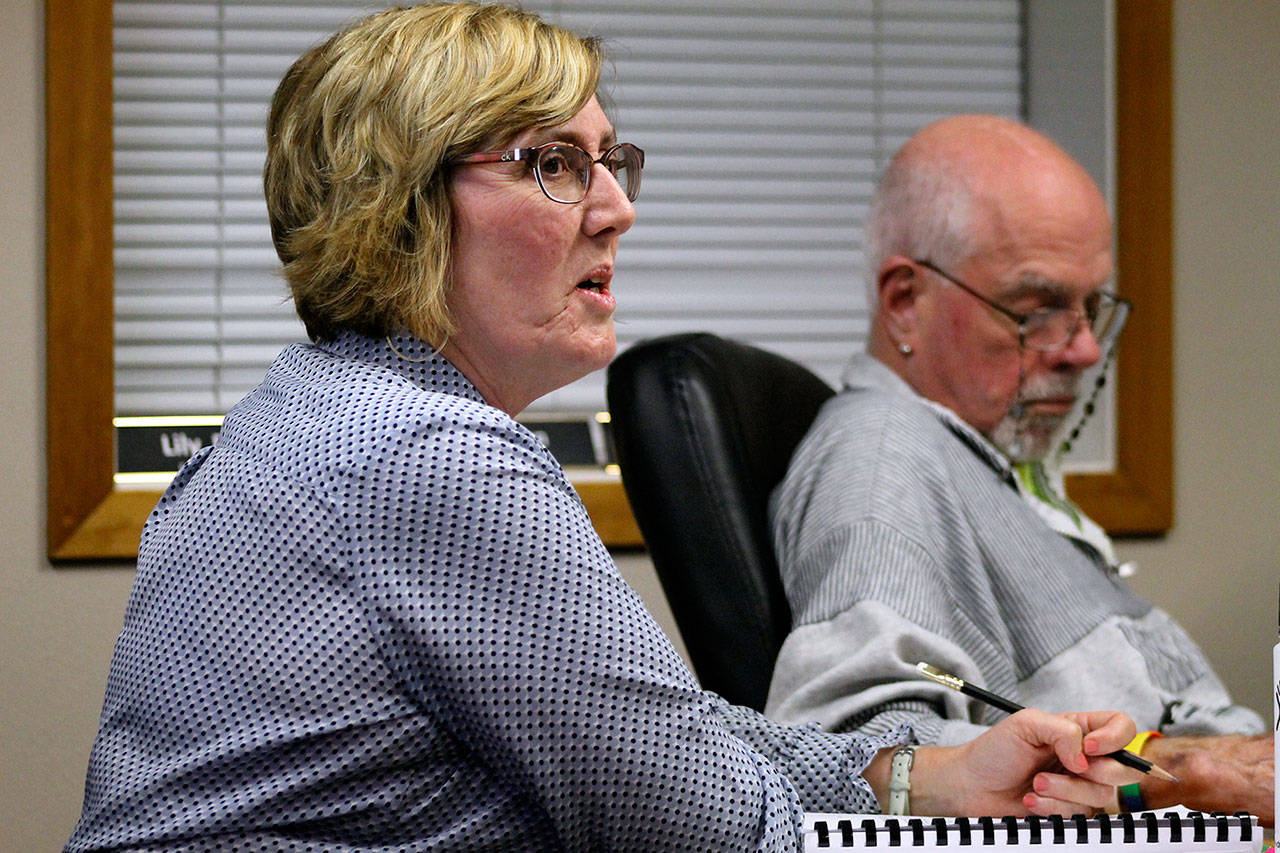The Citizens’ Climate Lobby’s carbon fee-and-dividend proposal did not get the Langley City Council’s stamp of approval on Tuesday night at city hall.
Instead, the council voted 4-1 to endorse a resolution calling on Congress to address climate change. The city joins 21 other municipalities across the country that have signed similar documents.
Langley and Bainbridge Island are the only cities in Washington on the list.
The Whidbey Island Chapter of the Citizens’ Climate Lobby asked the council on Dec. 18, 2017, for its support of a Carbon Fee and Dividend or a climate change resolution. The lobby’s volunteers are collecting endorsements from local governments across the country to help solve climate change at a national level, according to its website. The carbon fee is the advocacy group’s preferred solution.
Members of Whidbey Island’s chapter — Dean Enell, Tony Billera and John Goertzel — explained to the council that the carbon tax legislation, which is supported by 62 cities and counties and the state of California, is intended to reduce greenhouse gas emissions and shift the United States to a cleaner energy economy. The revenue-neutral plan would implement a progressively rising tax on carbon-based fuels and return the revenue to the public as an energy dividend, thus protecting consumers from increases in gas prices.
About a half dozen people commented in support of the carbon tax at the meeting. A decision was tabled until Jan. 2 so the council could digest the information from the presentation.
The council could have elected to do nothing as it historically has when asked to support or endorse issues or proposals not directly pertaining to city business. But, as summarized by City Councilwoman Christy Korrow, it opted to sign the climate change resolution because it reflects where the city stands in its comprehensive plan without having to take up the council’s time in researching the intricacies of the carbon tax.
She added that it’s important for Langley to stand up and throw its name into the hat.
“I do think there are times when as a city we should become part of a community of cities who say something,” Korrow said.
Climate change was a new chapter in the long-term planning document, which is currently in its final draft and awaiting a public hearing. It came with goals and policies, including reducing the city’s overall carbon footprint and greenhouse gasses, fostering local renewable energy sources, such as solar power, and assessing risk and potential impacts of climate change.
Dominique Emerson was the only council member to vote against the resolution. She said the council doesn’t have the “bandwidth” to accommodate issues outside the city’s realm of responsibility and that it invites the possibility of being flooded with more resolutions to consider “regardless of how worthy they are.”
“In the long run, it might open up a certain responsibility on our part to look at other things also and see what we think about them,” Emerson said.
City Councilman Peter Morton, who participated in his first official meeting on the council Tuesday night, asked where the city would stand if Washington state decided to support the carbon tax. Emerson and Councilman Bruce Allen said the city would be obligated to follow its lead.
Allen said supporting a resolution with a national scope is unusual for the city.
“Historically, we don’t get involved with national or state issues,” Allen said. “This is a national issue that they’re bringing to us, which is unusual for us to endorse. We endorse things that really reflect our city. This, in a peripheral way, does affect the city, but certainly not in a major view.”
Three members of the Whidbey Island Chapter who pitched the idea were hopeful the city council would support the carbon tax but were pleased with the outcome regardless.
“What we’re trying to do is build momentum so at the national level we can do something,” Enell said. “…This will help in that effort, which will eventually lead to some concrete means that accomplishes what we think needs to be accomplished.”
Enell, a Langley resident, added that if everyone in Langley were to buy an electric car or switch to more green-friendly living practices, it ultimately wouldn’t solve the problem. That wasn’t their objective, though.
“We need something major at a national level,” Enell said. “We kind of demonstrated last time that this carbon tax is one possible way to do it, my point being that it is Langley’s issue.”
“I thank you very much for supporting this, and it will certainly further our effort,” he added.


